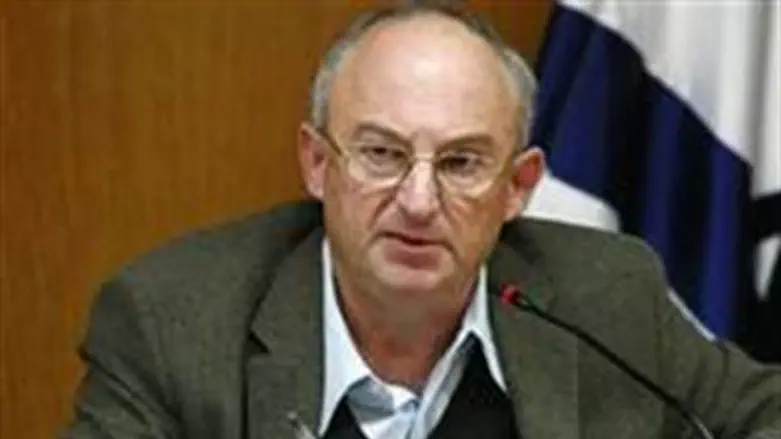
The Knesset Foreign Affairs and Defense Committee delayed a discussion entitled "Jordan is Palestine" citing the "sensitivity of the issue," according to MK Aryeh Eldad.
Eldad, who called for the discussion, said "the discussion is relevant and more urgent than ever. The shocks and upheavals in the Middle East will not pass Jordan by."
A long-time proponent of defining Jordan as the 'Palestinian state' over creating such an entity in Israel's biblical heartland, Eldad has pressed the government to abandon the bilateral track instituted by the Oslo Accords and pursue a separate diplomatic track with Jordan.
Earlier this year King Abdullah II of Jordan rejected the long-held formula of the Hashemite monarchy that "Jordan is Palestine," saying "The so-called 'substitute homeland' exists only in the minds of the weak."
Abdullah, responding to comments by Eldad, told reporters "the Jordanian option is an illusion. Jordan is Jordan, and Palestine is Palestine."
Analysts say, despite Jordan's couching its opposition to the Jordan is Palestine formula in terms of support for the current bilateral peace track and “protecting the interests of Palestinians,” that Amman's motives are likely rooted in its own demographic and security concerns.
Last week Abdullah said, "“A Fatah-Hamas joint platform of action, which may put an end to any prospect of Israeli-Palestinian negotiations, would be viewed with great concern in Amman. The absence of any negotiations may drift into violent friction between Israel and the Palestinians with dire consequences for all concerned, Jordan included."
Eldad earlier responded to Abdullah’s statements, saying "Abdullah knows full well that there is no other justification for Jordan and he is overwhelmed with fear of the masses in Amman today to do what they did Mubarak and Gaddafi."
MK Eldad today recommended, "It is better Abdullah announce today that Jordan is the national homeland for the Palestinians – or else seek asylum in London."
Sources close to the Foreign Affairs and Defense Committee told Arutz Sheva the government is concerned raising the issue for discussion at this time would sour already strained relations with Amman.